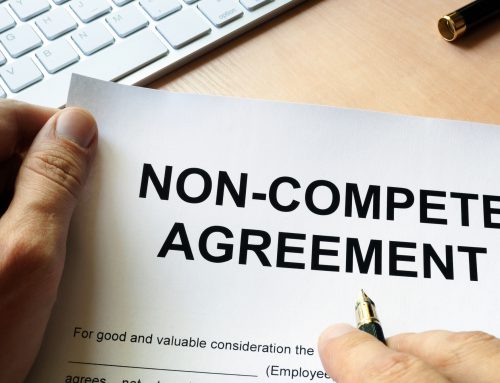In today’s complex business environment, having a strong corporate counsel network is essential for any company aiming for long-term success. Corporate counsels, also known as in-house lawyers, play a crucial role in navigating legal challenges, ensuring regulatory compliance, and protecting the company’s interests. This article will delve into the importance of and the steps involved in building a strong corporate counsel network.
Importance of a strong corporate counsel network
Legal expertise and risk management
Legal expertise is essential in navigating the complex and intricate legal framework that governs businesses. With laws and regulations constantly changing and evolving, having knowledgeable legal professionals on hand is crucial to ensure compliance and mitigate any potential legal risks. A strong corporate counsel network can provide valuable legal advice and guidance on a wide range of legal issues, from contract negotiations and intellectual property rights to employment law and corporate governance.
Additionally, corporate counsel can provide guidance on complex corporate transactions such as mergers and acquisitions, joint ventures, and strategic partnerships. By leveraging their network of legal experts and industry contacts, corporate counsel can help companies navigate the intricate legal and regulatory requirements associated with these transactions, ultimately maximising value and minimising risk.
In addition to legal expertise, risk management is another crucial component of a strong corporate counsel network. Risk management involves identifying, assessing, and mitigating potential risks that could impact the organisation’s operations, finances, and reputation. By having a dedicated team of legal professionals who are well-versed in risk management principles, organisations can better anticipate and prepare for potential risks, allowing them to make informed decisions and take proactive measures to protect their interests.
By staying informed and proactive, corporate counsel can help the organisation anticipate and navigate legal challenges before they become major obstacles, giving the organisation a competitive edge in the marketplace.
Strategic business advising
In-house lawyers are not just legal advisors, they also have a deep understanding of the business environment in which their clients operate. This unique combination of legal and business acumen allows corporate counsel to offer strategic advice that goes beyond mere legal compliance.
For example, when a company is considering entering a new market or launching a new product, corporate counsel can provide valuable insights into the legal and regulatory risks involved. They can help identify potential pitfalls and develop strategies to mitigate them, ensuring that the company’s expansion plans are both legally sound and strategically viable.
Furthermore, a strong corporate counsel network can also provide access to specialised expertise in areas such as intellectual property, data privacy, and compliance. By tapping into this network, companies can ensure that they have the right expertise on hand to address any legal challenges that may arise, allowing them to focus on their core business activities with confidence.
Cost efficiency
Legal expertise within a corporate counsel network can help protect the organisation from costly legal disputes and litigation. By proactively identifying and addressing potential legal risks, corporate counsel can help prevent legal issues from arising and minimise the financial and reputational damage that can result from legal disputes. This proactive approach to risk management can save the organisation time, money, and resources in the long run, allowing it to focus on its core business activities without the distraction of legal battles.
Also, relying solely on external legal firms can be expensive. Having an in-house legal team can significantly reduce legal costs by handling routine legal matters internally. Moreover, in-house counsels are more familiar with the company’s operations and can provide quicker, more tailored legal advice compared to external lawyers.
Confidentiality and trust
In-house lawyers are more integrated into the company and thus have a deeper understanding of its culture, values, and confidential information. This integration fosters a higher level of trust and ensures that sensitive information is handled with the utmost care.
Trust is essential for in-house lawyers to effectively advise their clients. Trust is built over time through consistent and reliable legal counsel. When key stakeholders trust their in-house lawyers, they are more likely to seek their advice and follow their recommendations. This trust allows in-house lawyers to have a greater impact on corporate decision-making and fosters a collaborative working relationship with other departments within the company.
Steps to build a strong corporate counsel network
Assess your legal needs
It is important to understand the specific legal requirements and challenges that your company faces. This involves conducting a comprehensive review of your business operations, identifying potential risks, and assessing the legal implications of your activities. By understanding the legal landscape in which your company operates, you can better determine the expertise and resources needed to address your legal needs effectively.
Furthermore, assessing your legal needs also involves evaluating the size and scope of your legal department. This includes determining the number of in-house lawyers required, their areas of expertise, and the level of support staff needed to assist them. By creating a clear organisational structure and defining roles and responsibilities within your legal team, you can ensure that your legal department is well-equipped to handle the company’s legal needs efficiently.
In addition, assessing your legal needs also involves considering external legal resources that may be necessary to supplement your in-house legal team. This includes identifying potential outside counsel, legal consultants, or other legal service providers that can provide specialised expertise or additional resources when needed. By establishing strong relationships with external legal partners, you can ensure that your company has access to the legal support it needs to address complex legal issues effectively.
Moreover, assessing your legal needs also involves developing a strategic plan for managing legal risks and ensuring compliance with laws and regulations. This includes setting clear goals and priorities for your legal department, establishing key performance indicators to measure success, and implementing processes and procedures to mitigate legal risks proactively. By taking a proactive approach to managing legal issues, you can minimise the likelihood of costly legal disputes and safeguard your company’s reputation and bottom line.
Define roles and responsibilities
One of the key aspects of defining roles and responsibilities is ensuring that each in-house lawyer understands their specific areas of expertise and focus. This can help to avoid duplication of efforts and ensure that all legal matters are being handled by the most qualified individual. Additionally, defining roles and responsibilities can help to establish clear lines of communication and accountability within the legal team. By outlining who is responsible for what tasks, in-house lawyers can more easily collaborate on projects and ensure that deadlines are being met. This can help to prevent misunderstandings and ensure that legal matters are being handled in a timely and efficient manner.
Here are some of the common roles in a corporate counsel network:
- General counsel: the chief lawyer of the company who oversees the entire legal function and advises the executive team.
- Corporate counsel: lawyers who handle specific areas such as corporate governance, mergers and acquisitions, and compliance.
- Litigation counsel: specialists in managing lawsuits and disputes.
- Regulatory counsel: experts in industry-specific regulations and compliance.
Recruit qualified professionals
Recruiting qualified professionals for an in-house legal department requires a thorough understanding of the skills and expertise needed to complement the existing team. This involves conducting a comprehensive assessment of the legal department’s current capabilities and identifying any gaps that need to be filled. By clearly defining the roles and responsibilities of each team member, legal executives can pinpoint the specific qualifications and experiences required for new hires.
Once the desired qualifications are established, the recruitment process can begin. In-house legal departments can leverage various recruitment strategies to attract top talent, including job postings on legal job boards, networking events, and referrals from industry colleagues. Additionally, partnering with legal recruiting agencies can help identify qualified candidates who may not be actively seeking new opportunities but possess the skills needed to excel in the role.
When evaluating potential candidates, it is essential to consider not only their academic credentials and professional experience but also their cultural fit within the organisation. In-house lawyers often work closely with other departments and senior management, so finding individuals who align with the company’s values and ethos is crucial for building a cohesive and collaborative legal team.
Foster a collaborative culture
Collaboration is key to the success of any legal team, as it allows lawyers to work together towards common goals, share ideas and expertise, and leverage each other’s strengths. It also promotes a sense of unity and camaraderie within the team, which can lead to increased morale and job satisfaction.
One of the ways to foster a collaborative culture within a legal team is to encourage open communication and information sharing. Lawyers should be encouraged to share their knowledge and expertise with their colleagues, whether through formal training sessions, informal lunch and learns, or regular team meetings. This not only helps to build a culture of collaboration but also ensures that all team members are up to date on the latest legal developments and best practices.
Another important aspect of fostering a collaborative culture is to promote teamwork and cooperation within the legal team. Lawyers should be encouraged to work together on projects and cases, sharing responsibilities and leveraging each other’s strengths. This not only helps to build trust and mutual respect among team members but also ensures that the best possible outcomes are achieved for clients.
In addition to promoting collaboration within the legal team, in-house lawyers should also look to build relationships with other departments within the organisation. By working closely with colleagues in other departments, lawyers can gain a better understanding of the business and its needs, as well as build a network of contacts that can be valuable in future legal matters. This cross-functional collaboration can lead to better outcomes for the organisation as a whole and help to position the legal team as a trusted and valued partner within the company.
Provide continuous training and development
Continuous training and development are essential for in-house lawyers to stay competitive and effectively navigate the complexities of the legal world. By investing in ongoing training programs, organisations can ensure that their in-house lawyers are equipped with the knowledge and skills necessary to address the legal challenges facing their company.
One of the key benefits of continuous training and development for in-house lawyers is the ability to stay current with changes in the law. Laws and regulations are constantly evolving, and it is essential for in-house lawyers to stay informed about these changes to effectively advise their organisations. By providing regular training sessions and access to resources such as legal updates and seminars, organisations can help their in-house lawyers stay ahead of the curve.
In addition to staying current with legal developments, continuous training and development also allow in-house lawyers to enhance their skills and expertise in specific areas of the law. Whether it be in contract drafting, negotiation, or litigation strategy, ongoing training programs can help in-house lawyers sharpen their skills and become more effective advocates for their organisations.
Moreover, continuous training and development can also help in-house lawyers stay abreast of best practices in the legal profession. By participating in training sessions and networking events, in-house lawyers can learn from their peers and gain valuable insights into how to improve their own practice. This continuous learning not only benefits the individual lawyer but also the organisation as a whole.
Furthermore, providing continuous training and development opportunities can also help in-house lawyers feel valued and supported by their organisation. Investing in the professional development of in-house lawyers shows that the organisation is committed to their growth and success. This can lead to increased job satisfaction, higher retention rates, and ultimately, a stronger counsel network.
Leverage technology
Technology enables in-house lawyers to collaborate more effectively with their colleagues and external partners. Cloud-based platforms and project management tools allow legal teams to work together in real-time, regardless of their physical location. This level of connectivity promotes collaboration, enhances communication, and fosters a more cohesive counsel network. Technology also enables better collaboration and communication within the team and with external stakeholders.
Moreover, technology can also help in-house lawyers stay compliant with regulations and mitigate legal risks. Legal compliance software can automate compliance monitoring, track regulatory changes, and provide alerts for potential risks. This proactive approach to compliance not only helps in-house lawyers avoid costly legal disputes but also enhances their reputation as trusted advisors within the organisation.
Building a strong corporate counsel network is a strategic investment that can provide significant benefits to your business. A well-structured and effective legal team helps navigate legal complexities, manage risks, and support business growth. By assessing your legal needs, recruiting qualified professionals, fostering a collaborative culture, providing continuous training, leveraging technology, and following best practices, you can establish a strong corporate counsel network that is a valuable asset to your organisation.
The Chief Corporate Counsel Club (“CCCC”) is a social-professional organisation which was established on 24 April 2024 under the auspices of the Vietnam Association of Corporate Directors (“VACD”). It serves as a platform that connects individuals working in legal departments of enterprises, practicing lawyers in law firms, and legal experts. It provides a forum for sharing, learning, and exchanging knowledge and experience in corporate law, thereby enhancing the operational quality of businesses. CCCC not only facilitates knowledge and experience sharing but also serves as a bridge between enterprises and government regulatory agencies. It aids in the dissemination and implementation of legal regulations directly to businesses, contributing to the sustainable development of enterprises and improving the investment and business environment in Vietnam.






